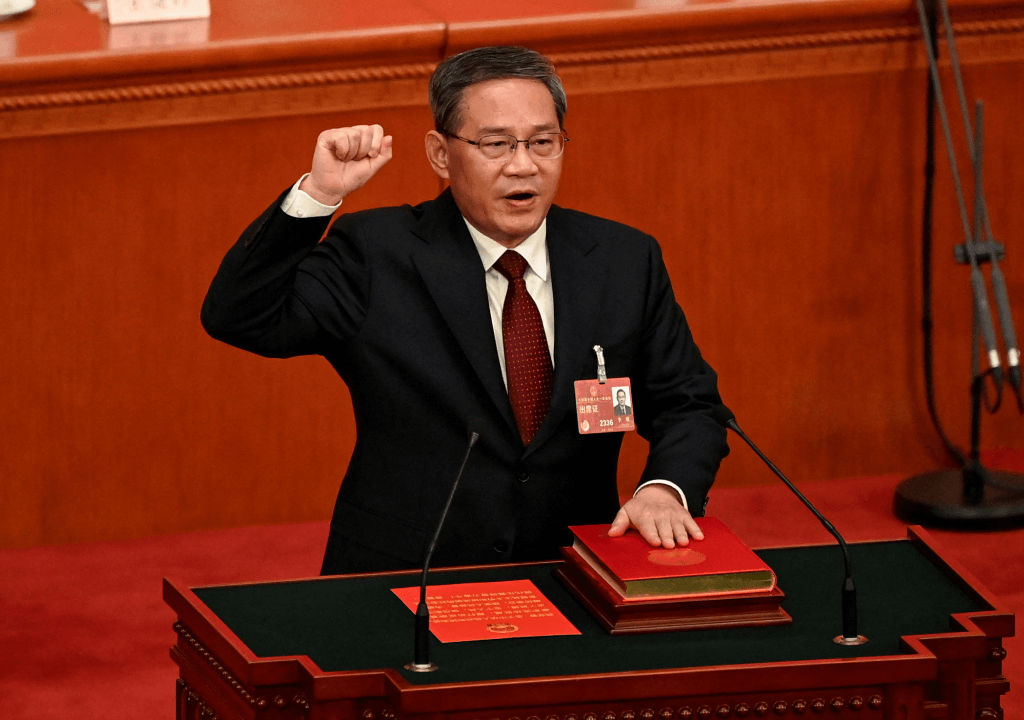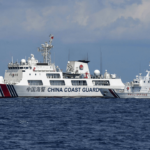China Addresses Reality in ‘Two Sessions’: Sets Modest GDP Target And Makes Key Political Decisions

As the political elite gathers in the capital for the simultaneous sessions of the National People’s Congress (NPC) and the Chinese People’s Political Consultative Conference (CPPCC), colloquially known as the “Two Sessions,” the nation’s top priorities for the upcoming year and beyond are revealed. Premier Li Qiang, addressing this annual assembly, tactfully acknowledges the realistic nature of the 5% GDP growth target. A prudent objective reflects a keen awareness of the intricate challenges posed by the global economy, simmering regional tensions, and nuanced domestic issues.
While the growth target remains consistent with last year’s, attaining it will necessitate a more substantial government stimulus. This is due to the persistent dependence on state investments in infrastructure, leading to a significant buildup of municipal debt.
The premier outlines a nuanced vision for the country’s economic future, set against the backdrop of China’s historical preference for modest economic objectives, especially amid regional tensions and demographic complexities. The aftermath of a stumbling post-COVID recovery in the past year has exposed deep-seated structural imbalances in China, encompassing weakened household consumption and diminishing returns on investment. These challenges, including a property crisis, Low customer demand, rising deflation, a downturn in the stock market, and growing concerns over local government debt, have prompted calls for a new development model.
There are indications that certain challenges facing China’s economy may have deeper roots, particularly issues stemming from an aging population and a diminishing workforce. January’s official data disclosed that China’s working-age population constituted 61% of the economy, down from 68% in 2013.
It’s evident that these challenges have heightened the pressure on China’s leaders. Premier Li stressed the need for preparedness in the face of all risks and challenges, advocating for a transformation in the growth model, structural adjustments, improved quality, and enhanced performance.
According to some experts, the significance of the GDP goal has diminished in recent years. China’s leader, Xi Jinping, has shifted focus away from growth and, consequently, the importance of the GDP goal. Instead, he emphasizes addressing structural issues that he believes undermine overall economic security.
During the deliberations of the National People’s Congress (NPC), the annual budget will be discussed, projecting a 7.2% increase in defense spending and a 1.4% rise in public security expenditures. Central government expenditures are expected to witness an 8.6% uptick. Premier Li emphasized a proactive fiscal stance and prudent monetary policy, intending to run a budget deficit of 3% of economic output.
Notably, China plans to issue 1 trillion yuan (US$139 billion) in special ultra-long-term treasury bonds, not included in the budget. The special bond issuance quota for local governments is set at 3.9 trillion yuan, with China also targeting a consumer inflation rate of 3% and the creation of over 12 million urban jobs to maintain a jobless rate around 5.5%.
Chinese Premier Li Qiang has restated China’s dedication to the “Reunification” with Taiwan, withholding specific details about the expected timeline for this pursuit., China omitted the reference to “peaceful reunification” in its work report, committing to resolutely advance the cause of China’s reunification and opposing separatist activities leading to ‘Taiwan independence’ and external interference.
And as expected China’s defense spending is set to increase by 7.2%, marking the ninth consecutive year of single-digit annual growth and contributing to heightened tensions in the South China Sea.
In his work report, Premier Li underscored the crucial implementation of the “One Country, Two Systems” policy, ensuring self-governance for Hong Kong residents and preserving the city’s high degree of autonomy.
Li emphasized the governing principle for Hong Kong and Macau to align with the law and be administered by patriots. He pledged Beijing’s support for the economic growth of both Hong Kong and Macau, striving to improve residents’ livelihoods and ensure sustained prosperity and stability. Highlighting the unique advantages and characteristics of these regions, Li urged active participation in the development of the Guangdong-Hong Kong-Macau Greater Bay Area, contributing significantly to the overall progress of the country. The Greater Bay Area initiative represents Beijing’s strategic plan to integrate Hong Kong, Macau, and nine other southern Chinese cities into an economic powerhouse and a center for innovation and technology.
China is set to continue its investment in technology innovation and advanced manufacturing, signaling the removal of all foreign investment restrictions in the manufacturing sector. Additionally, Beijing plans to ease market access constraints in service industries like telecoms and medical services. The government also intends to formulate development plans for emerging sectors such as quantum computing, big data, and artificial intelligence, which are currently under strong government control. However, critics argue that this high-tech manufacturing focus may exacerbate industrial overcapacity, deepen deflation, and heighten trade tensions with Western nations.
In a surprising move, China has canceled the premier’s post-parliament news conference, sparking concerns about the country’s increasing inward focus and centralized control. This represents a departure from the past three decades when China actively sought to clarify its politics and policies to attract foreign investment and enhance trade. Analysts interpret this shift as a move towards an era of isolation, reflecting China’s evolving stance on openness and transparency.
Notwithstanding these reports, Chinese stocks exhibited a minimal response, trading largely unchanged, indicating that investors were unimpressed with the stimulus plans and reform promises. Analysts observe that policymakers seem satisfied with the existing trajectory, disappointing those who anticipated a more substantial push. Premier Li acknowledged the challenges associated with these targets but underscored that “high-quality development” remains the foremost priority. So we have to think, China is veering towards more communist approaches in addressing the issues they currently face.




